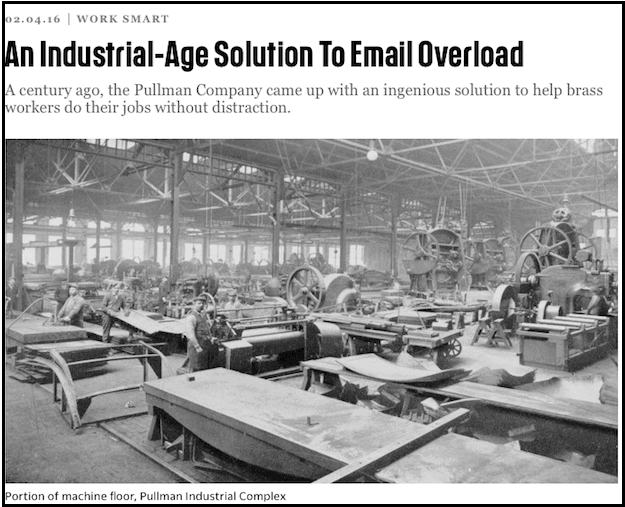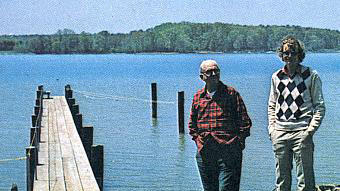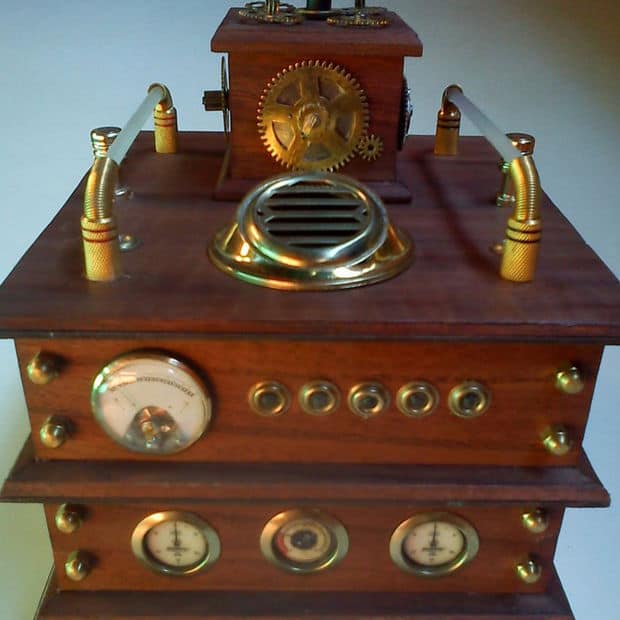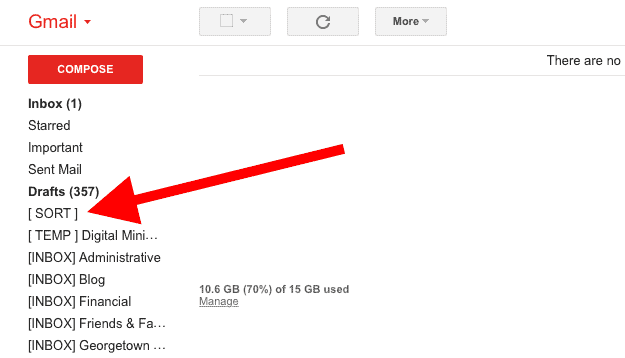
The Pullman Problem
A couple years ago, I stumbled across a series of articles from 1916, published in a business journal called System. The articles detail how the Pullman Company (famous for their eponymous train cars) arrested their slide away from profitability by systematically overhauling their operations.
As I detail in an essay I wrote for Fast Company, a big factor in Pullman’s early 20th century problems would sound familiar to early 21st century ears: communication overload.
As Pullman president, John Runnells, explained, many departments were run with “confusing unrelated systems [that] had been spontaneously developed.”
The result is that everyone was a little involved in everything — disrupting their ability to do their primary work.
If you wanted something from the brass works, to cite an example given in the 1916 articles, you would go over to the brass works and bother someone you knew until you got what you wanted– distracting both of you from your main value-producing crafts.
As Runnells sagely observed, if you don’t build optimized systems to handle logistics, the effort simply gets offloaded, in an ad hoc and disruptive manner, to everyone: “and every man contributing by that much [to these organizational efforts] demoralized his own particular work by the interruption.”






